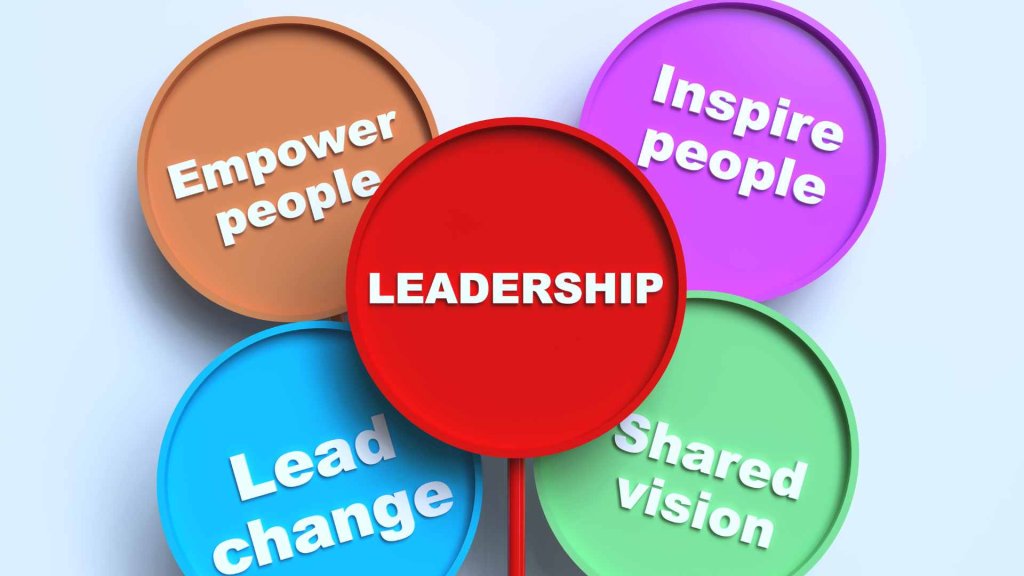VIEW BY TOPIC
- Finding Customers
- Business Systems
- Managing Employees
- Leadership
- Managing Money
Related Posts

Ready to Grow Your Business Fast?
Here’s How I Grew Five Businesses, and Eventually Sold One to a Fortune 500 Company.

All You Need to Know About Leadership Coaching
What is Leadership Coaching
Leadership coaching is a communication style that focuses on helping leaders to develop their personal and professional skills and abilities. It provides people with the knowledge, tools, and techniques they need to create a powerful vision for themselves and their organization, make decisions that will help them achieve this vision, motivate others, maximize their potential, and improve relations with co-workers and clients/customers.
This is based on the premise that if leaders have enough knowledge, skill and confidence, they will always make good decisions for their organization. It aims to provide them with the tools necessary to achieve this.
Leadership coaching can help manage one’s emotions and time and eliminate fears that interfere with decision-making abilities and effective performance at work.
The goal of leadership coaching is not to transform a leader into an expert or give them all the answers, but rather to equip them with skills such as self-knowledge, self-development, leadership technique etc., so that they may become more successful personally and professionally. The facilitator helps the client by providing them with the necessary information and tools that will help them make better decisions.
Leadership coaching can be done in an individual setting or a group situation, depending on the number of people who require guidance. One-on-one leadership coaching styles are generally best for beginners, while advanced learners may prefer group workshops to share their experiences with others. The facilitator should have enough knowledge about each participant to advise them better accordingly.
Participants should understand that this form of counseling requires time and commitment from all parties involved. It is meant to bring lasting results rather than short term fixes or quick solutions. However, suppose participants feel that they are not benefiting from it even after consistent effort. In that case, it may be advisable for them to move on to other leadership coaching styles or counseling.
The roles of leadership coaching
Leadership coaching is meant to help individuals develop and improve their professional skills, thereby allowing them to fulfill their potential as leaders. This, in turn, contributes to organizational success, stability and growth.
Coaches are well placed to support the leadership of an organization since they do not have vested interests (they do not report directly to the top management) or other conflicting duties that may interfere with their advice. This means that coaches can be more objective when it comes to making decisions on what is best for the company rather than just parroting instructions from superiors.

Leadership coaching process
The process of training through this method involves identifying those areas most important for ensuring a positive impact on the organization’s performance then trying out new ways of performing. The facilitator will ask questions, give feedback and suggestions for improvement, challenge the participants’ beliefs and assumptions, and help them work through their emotional responses when they face a difficult situation or make mistakes.
Using different leadership coaching styles, coaches focus on helping leaders explore various facets of business practices, including developing and testing alternative approaches to meet performance requirements. In this way, coaching helps people discover creative solutions for dealing with problems that arise in their professional lives.
When selecting potential coaches, one must look for those who understand what leadership really means and how it can be demonstrated within an organization. It is also necessary to ensure that such individuals have had relevant experience in dealing with other leaders to advise the client/s better.
It is advisable that the person who assumes this role (coach) should have good interpersonal skills, have different leadership coaching styles, be able to communicate effectively and possess adequate knowledge of leadership principles. If they are also trained in behavioral analysis/psychology, then it will help them better relate to their participants and provide more constructive feedback.
Benefits of Leadership coaching
Different leadership coaching styles offers great methods for people who want to gain self-awareness and improve their interpersonal skills. It enables an individual to develop the confidence needed for leading others towards achieving organizational goals while at the same time focusing on personal issues that may hinder performance or cause conflicts within the team. It also allows leaders in training to get their feet wet by making mistakes before they are faced with major challenges and have to deal with real-life situations.

The process of leadership coaching involves:
1) identifying those elements most important in ensuring positive outcomes
2) developing new ways of performing
3) challenging existing beliefs and assumptions
4) providing assistance through feedback, suggestions, advice etc., when necessary 5) helping participants work through emotional responses
6.) discovering creative solutions for dealing with problems and
7) providing support in discovering how to balance the various demands that come with leadership responsibilities.
Let’s go into the details one after the other.
1) Identifying those elements most important in ensuring positive outcomes:
It is important that the leader in training first and foremost identifies what needs to be done so that success can be achieved. This means having a clear picture of what performance might look like, identifying those essential skills that should characterize effective leadership, and taking note of key success factors for the organization. The most significant question an aspiring leader must ask themselves before beginning their journey towards acquiring new skills and traits is: “What are my strengths?” then, “How can I capitalize on them?”. It will also help if they identify their weaknesses or areas in need of improvement; this way, not only do they have a reference point but also targets to work towards achieving.
2) Developing new ways of performing:
Having a clear understanding of the skills and behaviors needed to succeed in your field is an essential step towards helping you develop new techniques. As an aspiring leader, you need not reinvent the wheel to improve; instead, begin by observing people who are already successful leaders in their chosen careers. To do this effectively, reflect on what it was that contributed most to their success. Then try incorporating these leadership skills into your personality so that you learn how they can be applied in real-life situations. This will help you become a more effective leader who can provide guidance to co-workers quickly and efficiently because they are confident that executing tasks using these methods will have positive outcomes for all involved.
3) Challenging existing beliefs and assumptions:
Aspiring leaders must feel comfortable admitting their weaknesses and understanding that identifying them is not the same as being weak. They should also take the time to understand what it takes to become a better leader to motivate themselves to achieve more. It is important that they are willing and able to do this since taking on the role of leadership requires one to acknowledge their flaws, learn from past mistakes while coming up with new ways of doing things so that results can be achieved faster and better than before.
4) Providing assistance through feedback, suggestions, advice etc.:
This step may need some background information about coaching, so here goes: leadership coaching involves giving useful instruction or criticism concerning a person’s performance or conduct. The process involves helping others to achieve their maximum competence in specific areas. In business, leadership coaching is becoming increasingly common since it helps individuals create a successful career by identifying and working on the skills, they need for them to achieve success with less stress and more enjoyment. Leadership coaching can be done through face-to-face meetings or via phone calls; it may also be part of an organized program such as those provided by management consultants or career counselors.
5) Helping participants work through emotional responses:
Approach leadership coaching from an empathic perspective and encourage the aspiring leader to do the same when dealing with other people’s emotions. One must be aware that everyone has feelings, and sometimes they have strong emotions about certain things that impact their performance, but not everybody is willing to share these feelings with other people. It is the responsibility of aspiring leaders to encourage them to feel free enough to openly discuss their emotional states so that issues can be resolved and prevent conflicts from arising between co-workers.

6.) Discovering creative solutions for dealing with problems:
It is the responsibility of aspiring leaders to understand that not every problem can be resolved by a straightforward solution; there are different leadership coaching styles and sometimes, creative approaches are necessary. To help people solve problems, they must be willing and able to come up with innovative ideas that will work for everyone involved. By encouraging and supporting people in this way, aspiring leaders create an environment where solutions can be found quickly because there is no time wasted on trying to find a single solution. Instead, participants will feel motivated to come up with multiple ideas to choose from different options, which seem most effective for solving the problem at hand.
7) Providing support in discovering how to balance the various demands that come with leadership responsibilities:
Without a doubt, the role of a leader comes with many responsibilities, including those that deal with subordinates. It is important for aspiring leaders to understand that they must be able to juggle multiple roles at once without compromising on the quality of their work or limiting their contribution in any way. Leaders should help others identify strategies that make it possible for them to fit all these demands into their daily routines while achieving better results than before.
Leadership coaching enables leaders to:
1.) Learn about their own strengths, weaknesses and preferred styles of performing
2.) Identify those areas which they may want to work on
3.) Practice new ways of getting things done
4.) Discover different approaches or strategies for handling organizational problems
5.) Improve decision-making skills
6.) Develop listening, negotiation and team development skills
7.) Become more objective when it comes to making decisions
8 ) Build strong interpersonal relationships
9 ) Focus on leading others rather than focusing on self
10) Help them find solutions for challenges arising in their professional lives
11) Handle pressure more effectively
12) Enhance one’s level of creativity
13) Open up avenues for continuous learning and
14.) Build a more positive self-image.
Leadership coaching is also useful in helping individuals to:
1.) Gain insight into communication patterns
2.) Analyze how they interact with others
3.) Identify areas of strengths and weaknesses
4.) Develop skills needed for building strong working relationships
5.) Improve decision-making process
6.) Work through any conflicts that may arise between members of the team
7.) Increase awareness about one’s preferred style of leading
8.) Enhance performance by managing stress effectively
9.) Become more effective listeners
10) Learn strategies for problem-solving,
11.) Communicate complex issues effectively
12) Persevere with challenging tasks without getting overwhelmed or frustrated when faced with problems or obstacles, and
13) Lead others towards achieving desired goals while at the same time being able to cope with any stressful situations that may arise.
Leadership coaching is ideal for business owners who want to improve their leadership skills and learn how they can use them to manage, motivate and inspire others within the organization. It also ensures that effective leaders are in place so that a company’s plans for growth can be achieved. And as more people are motivated at work, productivity levels will increase, which leads to better bottom-line results.
The process of leadership coaching will also help individuals gain self-awareness, develop interpersonal skills and become more creative, thus enabling them to respond effectively when faced with challenges or obstacles along the way such as downsizing, poor sales figures etc.
The effectiveness of the leadership coaching process depends on:
1.) The skills and techniques used by the coach who is also expected to maintain a professional relationship with their clients.
2.) Whether or not there are good rapport, open communication channels and trust between the coach and coachee.
3.) The maturity level of the individual and
4) The degree to which he is willing to make positive changes for him to achieve success.
Leadership coaching can bring about positive changes in the life of an individual. Great leadership coaching styles can empower leaders to find solutions to challenging problems and develop new leadership skills, thus enabling them to become more effective at work and achieve their desired goals.
Leadership coaching for small business owners
Using the coaching process, small business owners can feel more confident about their abilities to lead and motivate others. Using different leadership coaching styles, they can also negotiate difficult tasks effectively and successfully persevere with challenges that they encounter along the way. This gives them greater control over stress levels by helping them achieve balance in life.
How small business owners benefit from leadership coaching
1.) Improved self-image: Leadership coaching helps build a stronger sense of inner confidence among leaders. It ensures effective communication between employees, which in turn contributes towards strengthening group ties, thus concentrating on what is good for the company’s growth rather than internal conflicts and competition at work.
2.) Better decision-making ability: As a result of leadership coaching, small business owners make better decisions using facts and general knowledge rather than relying on personal feelings.
3.) Improved leadership coaching style: A leadership coaching session that helps small business owners to become assertive, more self-confident and competent leaders. They are also able to develop stronger interpersonal skills, which means they learn how to communicate effectively with others, thus enhancing the relationship between them and their overall level of productivity.
4.) Motivate employees: Through effective communication, individuals will find it easier to motivate and inspire their staff members at work. He can delegate responsibilities so that tasks can be performed without delays.
5.) Increased motivation levels: By developing a trusting relationship with employees, a leader motivates them by encouraging and supporting their efforts towards achieving common goals that align with the requirements of the business.
6.) Employee retention: Leaders who are open to receiving feedback from their staff learn how to improve their performance levels as well as develop new skills that result in increased productivity and an overall sense of solidarity among workers, which guarantees a harmonious work environment that encourages growth, success and creativity within each individual while working towards achieving organizational goals.
7.) Employment opportunities: Small business owners find it easier to attract potential employees because they earn a good reputation for being fair leaders with high standards who set the tone for everyone’s professional objectives.

What are the leadership coaching styles?
There are a number of different leadership coaching styles that can be used depending on your needs. While leadership coaching styles may vary, there are some common objectives that can be identified:
1.) Collaborative: This involves the coach working with you to find solutions and enhance your performance at work and in other areas, for example, raising children, etc. It is one of the best leadership coaching styles.
2.) Action-based: The focus here is on taking meaningful action when you feel stuck or unprepared.
3.) Gestalt: This is one of the leadership coaching styles that is effective when you feel overwhelmed by your emotions. It focuses on exploring your feelings and the origin of what caused them so that you can develop new perspectives while letting go of old ones which are no longer beneficial to you.
4.) Experiential: This is on the leadership coaching styles that encourages experimentation, taking risks and challenging yourself to go beyond your comfort zone.
5.) Co-active: This methodology uses various communication styles that enable you to elicit responses from the other person. It also encourages group discussions in order to meet your goals.
6.) Thematic Spiral: In this leadership coaching styles, you will be guided through a process that allows you to explore many different themes at once so that you can get to the heart of an issue more quickly while helping you to find solutions.
7.) Learning Styles: This involves exploring how effective leaders learn new skills and strategies. You are encouraged to take responsibility for your own learning and determine what kind of leadership behavior is most likely to help employees succeed towards achieving organizational goals.
What makes a good leadership coach?
A good leadership coach is someone who:
- a) has experience in dealing with problems and resolving difficulties that people face on the job or in their personal lives;
- b) knows how to get things done through others (for example, explaining what needs to be accomplished and then getting the individual committed to achieving it);
- c) knows something about how people think and work (for example, knowing whether an employee is more creative and spontaneous or more systematic and detail-oriented).
The levels of leadership coaching
According to Haydn Shaw, author of ‘The Seven Levels of Leadership, seven levels of leadership must be mastered before one can be successful and effective as a leader.
Level one: This level involves working with employees to develop new skills and introduce them to the business mission, vision, and values they will use to make decisions at work.
Level two: Once an employee acquires their new skills, it is now time to identify their unique strengths and areas that require improvement; this provides opportunities for each individual to set personal goals that align with the requirements of the organization’s values while encouraging staff members who are excelling in their roles.
Level three: Managers with strong communication skills can inspire confidence among team members by creating an environment where learning can take place and sharing new ideas about how people approach problems together, whether independently or as a group.
Level four: This level of leadership involves building trust in the workplace by encouraging team members to take part in both planning and implementing goals that are important for the organization while also giving them the opportunity to make suggestions for improving their roles within the company’s mission, vision and values.
Level five: Managers at this stage work with team members who have been promoted because they possess strong leadership skills that can be used to help others attain success through cooperation, involvement and support, along with encouraging those employees who are excelling in their roles but may still need more direction from leadership coaches to achieve optimal personal results.
Level six: This is where leaders begin coaching team members who are new to their positions because they have both exceeded or underperformed expectations through either their own efforts or support from leadership coaches. This is where strategies and leadership coaching styles are used for providing clear and detailed instructions along with recommendations for how team members should best go about achieving the desired results.
Level seven: In order to be successful as a leader, you must possess strong coaching skills that will enable you to provide guidance in the areas of personal motivation, career planning and job search techniques. Learning different leadership coaching styles will help.
Conclusion.
The workplace environment is always changing, and as we enter the 21st century, organizations must be able to attract and retain qualified individuals who can effectively adapt to both their current roles along with future opportunities.
In business, leadership coaches help employees to develop their strengths while identifying areas where they will require additional assistance to be more successful using different leadership coaching styles. This coaching process provides each team member with an opportunity for personal growth and development in addition to improving morale among staff members by increasing motivation while maintaining high levels of performance, which will ultimately lead to achieving organizational goals consistently. Read this great article on leadership characteristics.















